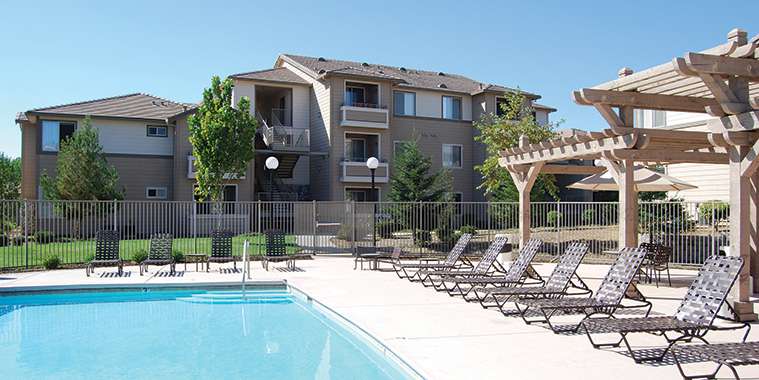We totally get why people buy condos: They’re cheaper and require less maintenance than a traditional house (no mowing grass!). Plus, they’re often stacked with cool common amenities from pools to gyms. What’s not to love? Yet while condo living might seem carefree, buying one is not necessarily a simple task.
Here’s how to buy a condo, how it’s different from buying a house, and a few insider tips to pave the way to ownership.
Consider your unit’s surroundings
While the condo unit itself is a key consideration, it’s also important to carefully check out the environment around it — particularly when it comes to noise. Remember, you’ll be sharing walls with your neighbours, and perhaps even ceilings and floors.
Buyers should book a showing during typically “louder” times of the day, such as dinner time when kids are home, to see how well the walls actually dampen the noise. Ask a few of the neighbours about general property noise, such as how loud the traffic and surrounding neighborhood are, and if they can hear their neighbors through the walls.
The unit you choose can play a large role as well. End units share fewer walls than those in the middle, which can lessen neighbour noise. Of course, that’s also one of the reasons why end units and top-floor units are more coveted — and often pricier — but if you’re sensitive to noise, that could be money well spent.
Check out the condo association
When you buy a condo, you’re buying into the entire community — including its rules on everything from when and where it’s OK to let your dogs off the leash to whether RVs are allowed in your driveway. You’ll want to carefully read through the community’s regulations as well as penalties for not following them.
When a buyer agrees to the association documents, he or she is automatically bound to the condo board’s rules. These typically entail parking space allowances, regulations related to pets, and homeowner responsibilities for repairs and maintenance.
If there is something in the association by-laws that you as a buyer don’t agree with, talk to your REALTOR® for advice.
Prospective condo buyers should also do their due diligence on the condo association’s finances, because this will affect your odds of getting a loan (more on that next).
Secure financing
In some cases, it can be trickier to secure a mortgage for a condo than a traditional home because the health of the condo development hinges on multiple owners paying their bills. Your mortgage lender is apt to conduct a thorough review of the condo complex as a whole, including documents relating to the overall health of the building and the condo association. The good news is that you can consider this an extra layer of due diligence to protect your own investment.
Work with your REALTOR®
Your REALTOR® will understand all the details and differences between buying a condo and buying a house. They can provide any answers you may have and can also provide assistance with understanding condo regulations specific to each condo project.
— realtor.com



